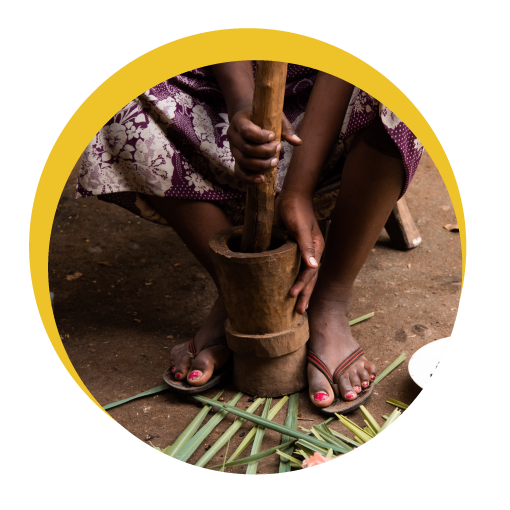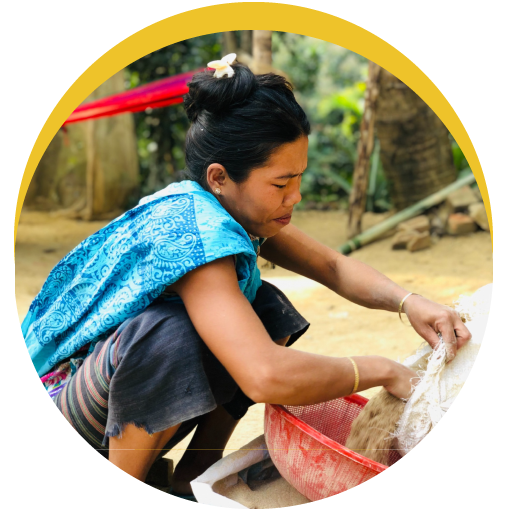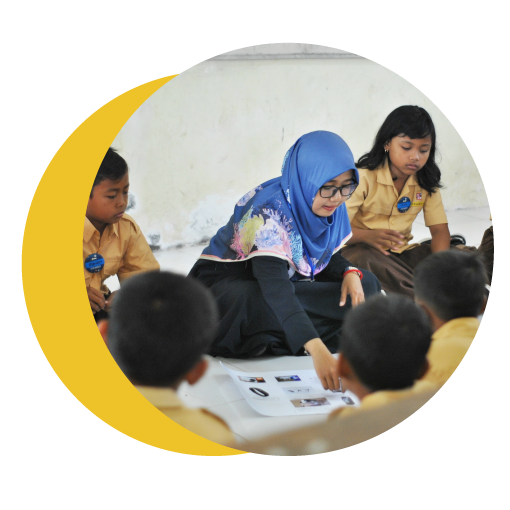Women’s Economic Empowerment:
building evidence for better investments
This project used a mixed–methods and country-based approach to track funding to women’s economic empowerment (WEE), women’s financial inclusion (WFI), women’s empowerment collectives (WECs), and to assess funders’ gender integration (GI). You can find our definitions here.
Our sequential design involved four stages: 1) inception phase, (2 & 3) two research phases, including desk reviews, surveys, and in–country qualitative key informant interviews (KIIs), and (4) the production of a global transparency report.

Phase one
INCEPTION AND ASSESSMENT:
In this phase we:

Phase two and three
COUNTRY RESEARCH
In these stages of our project, we conducted country–based research.
In Phase two we focused on tracking national and international funding to Kenya, Nigeria and Bangladesh. To do this, we:
- Conducted desk research to identify funding to WEE, WFI, and WECs and assess GI among funders and gender-responsive budgeting (GRB) among governments
- Conducted in–country research to validate and supplement our desk research findings, with the support of our country consultants and budget experts
- Carried out key informant interviews with government officials, funders, implementers, women’s rights organisations and academics, with the support of our country consultants and budget experts
- Implemented a country funding survey of funding received or generated by organisations working towards WEE, WFI, and WECs
- Collaborated with national stakeholders and networks to contextualise research and advocacy to build upon their existing knowledge and support ongoing efforts to promote WEE in each country
- Targeted advocacy with key funders around findings and policy recommendations
After piloting our research to track international funding, in Phase three we focused on continuing to track national funding to Ethiopia, Uganda and Pakistan. In this phase we:
- Conducted desk research to identify funding to WEE, WFI, and WECs and GRB among governments
- Conducted in–country research to validate and supplement our desk research findings, with the support of our budget experts
- Carried out key informant interviews with government officials, with the support of our budget experts
- Collaborated with national stakeholders and networks to contextualise research and advocacy to build upon their existing knowledge and support ongoing efforts to promote WEE in each country
- Targeted advocacy with key stakeholders around findings and policy recommendations
All our reports can be accessed here.

Phase four
GLOBAL TRANSPARENCY REPORT & ADVOCACY:
In this phase we will:
- Synthesise findings from our six focus countries to produce a global transparency report with evidence–based recommendations for funders to improve their collection and publication of related data and information
- Conduct targeted engagement with key stakeholders and advocacy activities to disseminate the findings and seek commitments for change
- Consult with stakeholders to agree on the long–term housing of our tested WEE and WFI funding tracking tools
- Publish our tried and tested methodology to merge OECD and IATI data sources using SQL methodology for public use, available here
Evidence
COUNTRY REPORTS
Evidence on 1) what funding towards WEE, WFI, WECs is being spent at the country level, why and with what effect, 2) funders' GI approach, 3) how investments have changed over time, including trends and gaps
GLOBAL TRANSPARENCY REPORT
Cross-country evidence on 1) key findings on funders’ funding to WEE, WFI, WECs and the salience of a GI approach 2) the main data challenges of tracking funding, 3) evidence-based recommendations for funders to improve their collection and publication of related data and information.
TRACKING TOOLS
Tested tools for tracking funding to WEE and WFI





